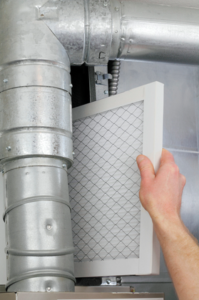HEPA Filters: Why They Matter
 One cannot deny the fact that HEPA filters matter. The acronym stands for high efficiency particulate air filter. The HEPA filter is primarily used for several different reasons like the control of microbes and allergens in laboratories and hospitals, manufacturing and production facilities, and even private homes.
One cannot deny the fact that HEPA filters matter. The acronym stands for high efficiency particulate air filter. The HEPA filter is primarily used for several different reasons like the control of microbes and allergens in laboratories and hospitals, manufacturing and production facilities, and even private homes.
There are filters and there are HEPA filters. In order for one to be classified as HEPA, it has to be able to meet specific guidelines laid out by the United States Department of Energy. Of all the specific guidelines, the most notable or basic one is that the filter should be able to remove ninety nine percent of all contaminants from the air. Those contaminants are at least 0.3 microns in diameter.
For information sake, a micron means a millionth of a meter. To have a clearer look at how small it really is, a human hair is about a hundred microns wide while a tobacco smoke particle is between 0.01 and 1.0 micron. Meanwhile, most bacteria particles are within the 0.35 to 10 micron range. Any substance or particle that is smaller than 10 microns will be invisible to the naked eye. Hence, something that is 0.3 microns is considerable small. But then again, a HEPA filter can still capture bacteria or particle of that specific size. That’s why such kind filter matters.
The usual HEPA filter is made up of mat-like material reinforced with fibers. The fibers have to be arranged in precise order so that the small particles will stick to them in three possible ways namely interception, impaction, and diffusion. Interception is actually the first line of defense that is usually utilized in a heating and cooling system. It is in interception where most particles in the air flow stream commonly stick to the fiber. Impaction on the other hand is the second line of defense where larger particles will be trapped in the curved-designed contours of the fibers. Finally, diffusion is the last line of defense. It works by trapping the molecules that are just too small for both impaction and interception through forcing them to bump with gas molecules.
The use of a HEPA filter nowadays is primarily noticed in situations and scenarios where sufficient and ideal indoor air quality is needed. A sufficient indoor air quality may be needed in manufacturing industries and commercial spaces, but today it is also very much a necessity in private homes and living spaces. It means that the lack of good indoor air quality will affect the health of the people living inside the home and will most likely cause or result to allergies, asthma, and other kinds of respiratory illnesses.
In the end, appliances and home equipment that use HEPA filters matter a lot and even play a major role in making sure the indoor air quality is at its best state to ensure the health of everyone living inside. With HEPA filters, there is a greater chance of avoiding and preventing skin and eye irritations, breathing issues, and nasal stuffiness, all caused by contaminants and allergens present in the air.
